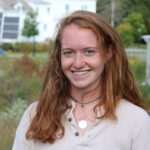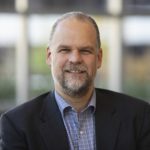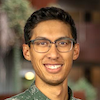
- This event has passed.
Webinar: Zero Waste Goal Setting – Qualitative vs. Quantitative and the Challenges with Diversion
April 27, 2022 @ 3:00 pm - 4:00 pm EDT
FreeWhile diversion has been the go-to metric for evaluating our waste reduction efforts, it skips over several levels of the waste reduction hierarchy, resulting in the prioritization of recycling and composting rates over source reduction and aversion. During this session, we will discuss other options for benchmarking and tracking progress towards a holistic campus-wide zero waste system and what it means to develop a campus-wide approach to sustainable materials management. We will review other ways that campuses (like Boston University and the University of California system) have set goals for zero waste by measuring and tracking aversion, waste-per-capita, and waste by material category.
We will also review case studies from two campuses who have recently gone through the process of engaging campus stakeholders in visioning sessions to restructure and redesign the campus approach to zero waste through qualitative goal-setting – Colby Sawyer College and Williams College.
This interactive session will walk you through the steps to creating a Roadmap to Zero Waste specific to your campus, and lay out the different options for campus-wide goal setting. We’ll address the key pieces involved in developing a plan including materials management infrastructure, stakeholder input, procurement policies and bin standardization, identifying existing initiatives and determining opportunities for improvement. In addition, we will discuss how to determine which projects to prioritize, garnering administrative support, and ensuring that your plan encompasses realistic goals for your campus.
For members: Watch on demand For members: archived webinars on demand Upcoming webinars
Presenters
 |
Alex Freid, Founder & Sr. Dir of Atlas Consulting, Post-Landfill Action Network (PLAN) Alex Freid is the Founder and Sr. Director of Atlas Consulting at the Post-Landfill Action Network (PLAN), a national nonprofit network of over 700 campuses working towards Zero Waste. Alex graduated from the University of New Hampshire in 2013, where he started the UNH Trash 2 Treasure program, PLAN’s first program model. Alex is a Udall Scholar, a Brower Youth Leader, and was named the New Hampshire Young Entrepreneur of the Year in 2015. Today, PLAN provides leadership training, and best-practices guidance to achieve zero waste to our students and staff, and hosts the annual Students for Zero Waste Conference and Beyond Waste Student Summits. In 2021 PLAN launched the Atlas Zero Waste Certification the first zero waste certification program for college campuses. |
 |
Lauren Lynch, Zero Waste Intern, Williams College Zilkha Center for Environmental Initiatives Lauren Lynch (she/her) is a junior at Williams College, where she studies Political Science and Religion with a focus on Environmental Studies. Throughout her time at Williams, she has worked as a Zero Waste Intern for the Zilkha Center for Environmental Initiatives. In terms of other environmentally-focused work, she has worked as a teacher at The Island School, where she co-developed and taught their Sustainable Systems curriculum. In addition to Zero Waste work, she also works as a college advisor to high-achieving low-income high school students through an organization called Matriculate and is a DJ for the campus radio. In her free time, Lauren can be found playing the beautiful game of ultimate frisbee! |
 |
Ryan Bell, Associate Director of Sustainability, University of California Office of the President Ryan Bell has over 20 years of experience advancing local sustainability efforts. At the University of California Office of the President, he works on issues surrounding climate change, green buildings, sustainable transportation, zero waste, and student engagement. Before joining the UC system, Ryan worked for Alameda County, where he managed internal waste and recycling programs, developed and implemented their “Climate Action Plan for Government Services and Operations,” and lead other environmental initiatives. Ryan has worked for the Bay Area Air Quality Management District and with non-profit organizations helping local governments across the U.S. and internationally reduce their environmental footprint. He has consulted in Central and Eastern Europe, co-authored the book, “Local Action: The New Paradigm in Climate Change Policy,” and serves on Berkeley’s Energy Commission. A normal weekend finds Ryan hiking, biking, skiing, working on the house, or playing with his kids. |
 |
CJ Agbannawag, Sustainability Program Coordinator, University of Arizona CJ is the Sustainability Program Coordinator for the Office of Sustainability and has been with the office for over two years. In his role, CJ oversees many of the Office of Sustainability’s student Sustainability Project Assistants and has a broader focus on student and staff engagement and zero waste efforts across campus. Prior to working for the university, CJ worked with an Arizona-based nonprofit that partnered with local businesses to develop economically viable plans for achieving their sustainability goals. He assisted businesses in identifying many cost-efficient projects for water use reduction, energy conservation, waste reduction, and other sustainability related projects. While this is his first time working for the University of Arizona, he is returning to campus as an alum after graduating with a Bachelor of Science in Sustainable Built Environments from the College of Architecture, Planning, and Landscape Architecture in 2015. |